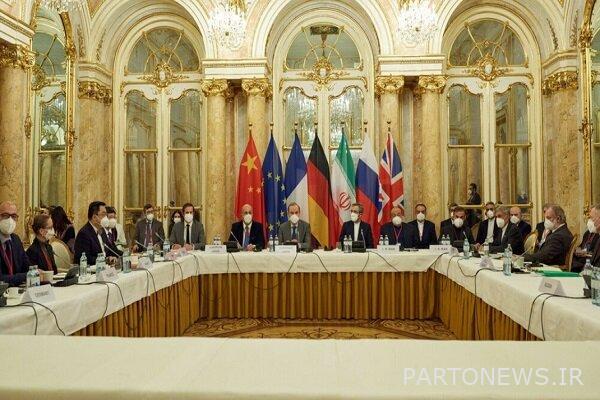Iran ready for agreement in Vienna – Mehr News Agency | Iran and world’s news

According to Mehr News Agency, Tehran Times newspaper In his editorial, the Iranian delegation headed by Ali Bagheri, Iran’s chief negotiator, traveled to Vienna to hold the third round of sanctions lifting talks.
The Tehran Times further wrote that at the same time as the resumption of the Vienna talks, Iran has moved towards expressing its expectations from other parties, especially the European troika, including France, Germany and Britain. The European troika, and especially France, played a non-constructive role in the previous round of negotiations, preventing negotiators from accessing, at least in one case, the document that was to form the basis of the next round of talks.
The first round of Vienna talks began during the presidency of Seyyed Ibrahim Ra’isi in late November (December 29) between Iran, Russia, China and the three European countries in Vienna, the capital of Austria. Since then, two rounds of these talks have been held, with the current round, which started yesterday, Monday, a total of three rounds of talks, which, of course, is considered by the Westerners to be the eighth round.
During the previous two rounds of talks, Iran made two proposals for nuclear action and sanctions, despite accusations from the West that it was not serious and time-consuming. Although these proposals were fully in line with the provisions of the 2015 Nuclear Non-Proliferation Treaty, the Comprehensive Joint Action Plan (CJAP); The Europeans initially rejected Iran’s proposals but were later forced to include them in the final two documents reached at the end of the final round.
An informed source in the talks told the Islamic Republic News Agency (IRNA) that France had played a “disruptive” role in the previous round of talks. According to the source, when the French delegation was absent from the talks due to its presence at the G7 foreign ministers’ meeting, “significant progress” was made in drafting, but with the return of the French representative to the talks, After a two-day absence, “the process of disruption and harassment resumed.”
The source also said that the drafts were acceptable to all parties, but the French negotiators opposed the drafts and “the negotiation process was disrupted”.
In addition to France’s non-constructive and destructive role in the negotiations, the Europeans, along with the United States, sought dignity through their deadlines in order to create a sense of urgency for the negotiations. Despite this, Iran has stated that it will not fall into the trap of “artificial deadlines.” IRNA quoted an informed source in the talks as saying that the Iranian negotiating team would stay in Vienna for as long as needed.
Iran has also been a positive participant in the negotiations and has made progress on its nuclear program, but little progress has been made on sanctions, which the United States should play a key role in.
Despite the general progress, the Europeans tend to darken the atmosphere of the Vienna talks. By issuing statements and comments on the content of the talks, the Western parties are trying to keep the media environment around the talks negative in order to pressure the Iranian delegation to get concessions, and on the other hand, to blame Iran if the talks fail. .
All this while Iran has a positive participation and interaction in the negotiations and the ball is in the ground of the Westerners, but instead of positive interaction, they continue to create and induce an atmosphere of urgency (about the time to continue negotiations) about Borjam.
US Secretary of State Anthony Blinken recently claimed that the opportunity to revive Burjam was being lost. “I do not want to limit the time or announce the amount of way left, but I have to say that yes, time is very, very limited,” he said.
The US Special Representative for Iran, Robert Mali, also set a “several-week” timeframe for maintaining order.
Some observers believe that if the United States believes there is an urgency to reach an agreement with Iran, it should abandon the so-called “maximum pressure” campaign launched by former US President Donald Trump.
The administration of current US President Joe Biden not only did not abandon the policy of maximum pressure on Iran, but also added sanctions on Iran. In addition, US officials even began threatening Iran with a military option if diplomacy failed.
US and Israeli officials have discussed “alternatives” (if the Vienna talks fail). Some believe that the Israeli-US dialogue on other options reflects the strategic confusion of Washington and Tel Aviv over Iran’s deliberate moves on the ground.
.

